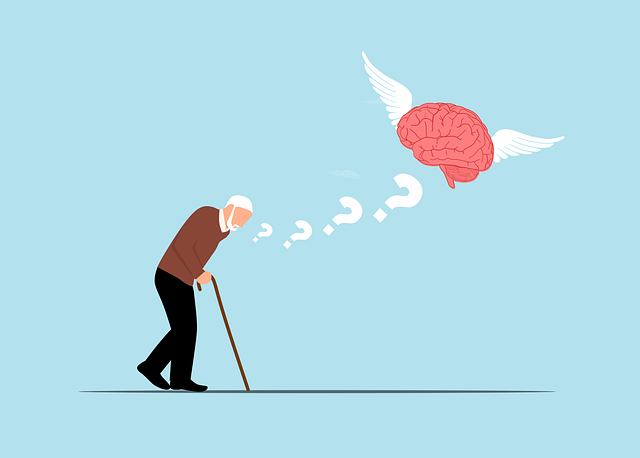Emotional Intelligence (EI) is a transformative tool for Broomfield Abuse Survivors Therapy (BST) clients, offering healing through introspection and self-care practices like journaling. This holistic approach enhances mental wellness, equips communication skills, and builds resilience against future trauma. By identifying and managing emotions, survivors develop empathy, improve relationships, and gain control over their emotional well-being. BST's specialized techniques, including mindfulness and advocacy, foster profound emotional healing and deeper connections. Cultivating EI through mindfulness practices, self-reflection, and stress management workshops empowers individuals to navigate life's challenges with adaptability and improved emotional intelligence.
Emotional intelligence (EI) is a powerful tool for healing and personal growth, especially for those who have experienced trauma. This article explores the profound impact of EI on Broomfield Abuse Survivors, highlighting the transformative role of therapy in fostering emotional resilience. We provide practical strategies, from identifying and managing emotions to building empathy and cultivating adaptability. Discover how these steps can enhance relationships and promote well-being for survivors navigating the healing process.
- Understanding Emotional Intelligence and Its Impact on Healing
- The Role of Therapy in Fostering Emotional Intelligence for Broomfield Abuse Survivors
- Identifying and Managing Emotions: A Step-by-Step Guide for Personal Growth
- Building Empathy: Enhancing Connections and Relationships Post-Trauma
- Strategies to Cultivate Resilience and Adaptability Through Emotional Intelligence
Understanding Emotional Intelligence and Its Impact on Healing

Emotional intelligence (EI) is a powerful tool in the journey towards healing, especially for those who have experienced trauma or abuse. It involves recognizing and understanding one’s own emotions and those of others, and using this awareness to guide thoughts and actions. For survivors of Broomfield Abuse Survivors Therapy (BST), developing EI can be transformative. By cultivating emotional intelligence, individuals gain a deeper sense of self-awareness, enabling them to process past traumas and regulate their emotional responses effectively.
This process often begins with introspection through mental wellness journaling exercises, where survivors can explore and express their feelings. Self-care practices, such as establishing a consistent self-care routine, play a pivotal role in fostering mental wellness. By prioritizing these routines, survivors create a safe space for themselves to heal, process emotions, and build resilience. This holistic approach, including emotional intelligence development and self-care, empowers individuals to take control of their mental health and embark on a path towards profound personal transformation.
The Role of Therapy in Fostering Emotional Intelligence for Broomfield Abuse Survivors

For Broomfield Abuse Survivors, therapy plays a pivotal role in fostering emotional intelligence. Through specialized treatments, survivors can learn effective communication strategies and empathy-building techniques that were perhaps missing during their traumatic experiences. Mental health education programs designed specifically for this demographic equip them with tools to navigate complex emotions, understand triggers, and develop healthier coping mechanisms.
Therapy provides a safe space where Broomfield Abuse Survivors can process their feelings, gain insights into their emotional responses, and cultivate self-awareness—crucial components of emotional intelligence. By integrating communication strategies learned in therapy into their daily lives, survivors enhance their relationships, improve conflict resolution skills, and build resilience against future abuse. This holistic approach supports not just recovery but also the long-term development of emotional intelligence.
Identifying and Managing Emotions: A Step-by-Step Guide for Personal Growth

Identifying and managing emotions is a crucial step in emotional intelligence building, especially for those who have experienced Broomfield Abuse Survivors Therapy. It begins with recognizing your feelings—a practice known as mindfulness. Take time to observe your thoughts and emotions without judgment; this awareness allows you to identify patterns and triggers that set off specific emotional responses. Once recognized, understanding these emotions is the next step. Labeling them accurately helps in interpreting their meaning and origin.
For instance, instead of reacting impulsively to a perceived slight, stop and label the emotion as anger or disappointment. This process enables individuals to manage their reactions, fostering self-control. Additionally, engaging in compassion cultivation practices can aid in regulating emotions healthily. By acknowledging that all feelings are valid, even difficult ones, you can develop empathy for yourself and others, enhancing your emotional intelligence and communication strategies.
Building Empathy: Enhancing Connections and Relationships Post-Trauma

Building empathy is a crucial aspect of emotional intelligence that can significantly enhance connections and relationships, especially for individuals who have experienced trauma. Broomfield Abuse Survivors Therapy (BST) recognizes this need and employs specialized techniques to help clients develop strong emotional awareness and understanding. By fostering empathy, BST aims to promote emotional well-being among survivors, enabling them to form deeper, more meaningful bonds with others.
Through various therapeutic interventions, such as mindfulness meditation and mental health policy analysis and advocacy, clients learn to recognize and appreciate the feelings of both themselves and those around them. These practices not only help in processing past traumas but also equip individuals with powerful emotional intelligence tools. Consequently, survivors become better equipped to navigate interpersonal relationships, leading to improved communication, stronger support systems, and a profound sense of belonging.
Strategies to Cultivate Resilience and Adaptability Through Emotional Intelligence

Building emotional intelligence (EI) is a powerful tool for navigating life’s challenges, especially for those who have experienced trauma or abuse. Strategies to cultivate resilience and adaptability through EI include practicing mindfulness, which helps individuals stay present and grounded in their emotions. By learning to recognize and accept their feelings, they can better understand triggers and develop healthy coping mechanisms.
Additionally, engaging in therapy, particularly Broomfield Abuse Survivors Therapy, offers a safe space to process traumatic experiences and develop emotional healing processes. This form of therapy encourages self-reflection and self-esteem improvement, enabling individuals to build resilience and adaptability. Furthermore, participating in stress management workshops within organizations can provide practical tools for managing emotional responses, fostering better relationships, and enhancing overall well-being.
Emotional intelligence (EI) is a powerful tool for healing and personal growth, especially for those who have experienced trauma like Broomfield abuse survivors. By understanding and managing their emotions, individuals can build resilience and adapt to challenging situations. The strategies outlined in this article, combined with effective therapy for Broomfield Abuse Survivors, offer a comprehensive approach to fostering EI, enhancing relationships, and improving overall well-being. Through identifying emotions, cultivating empathy, and developing adaptability, one can achieve a profound sense of healing and empowerment.














